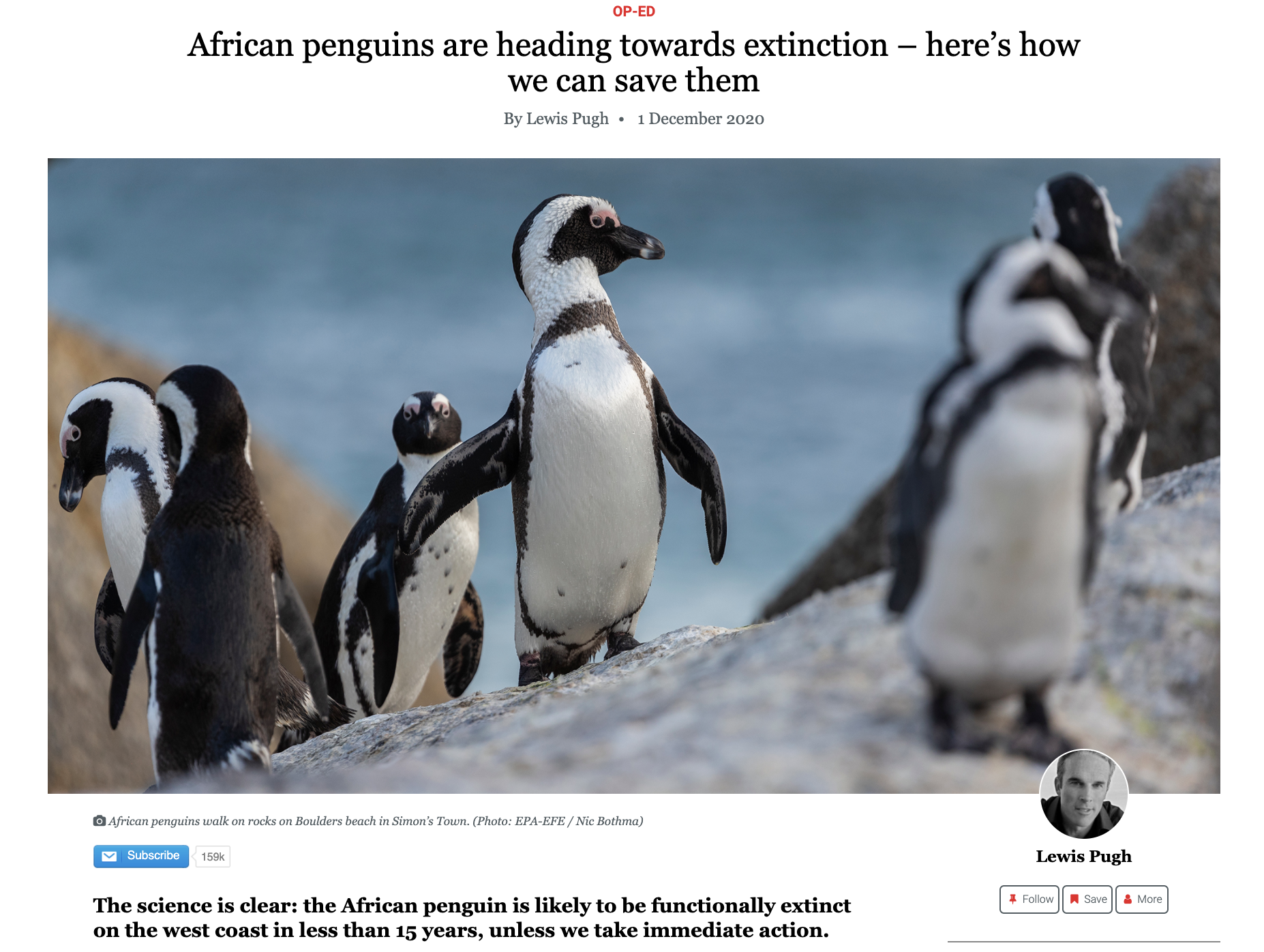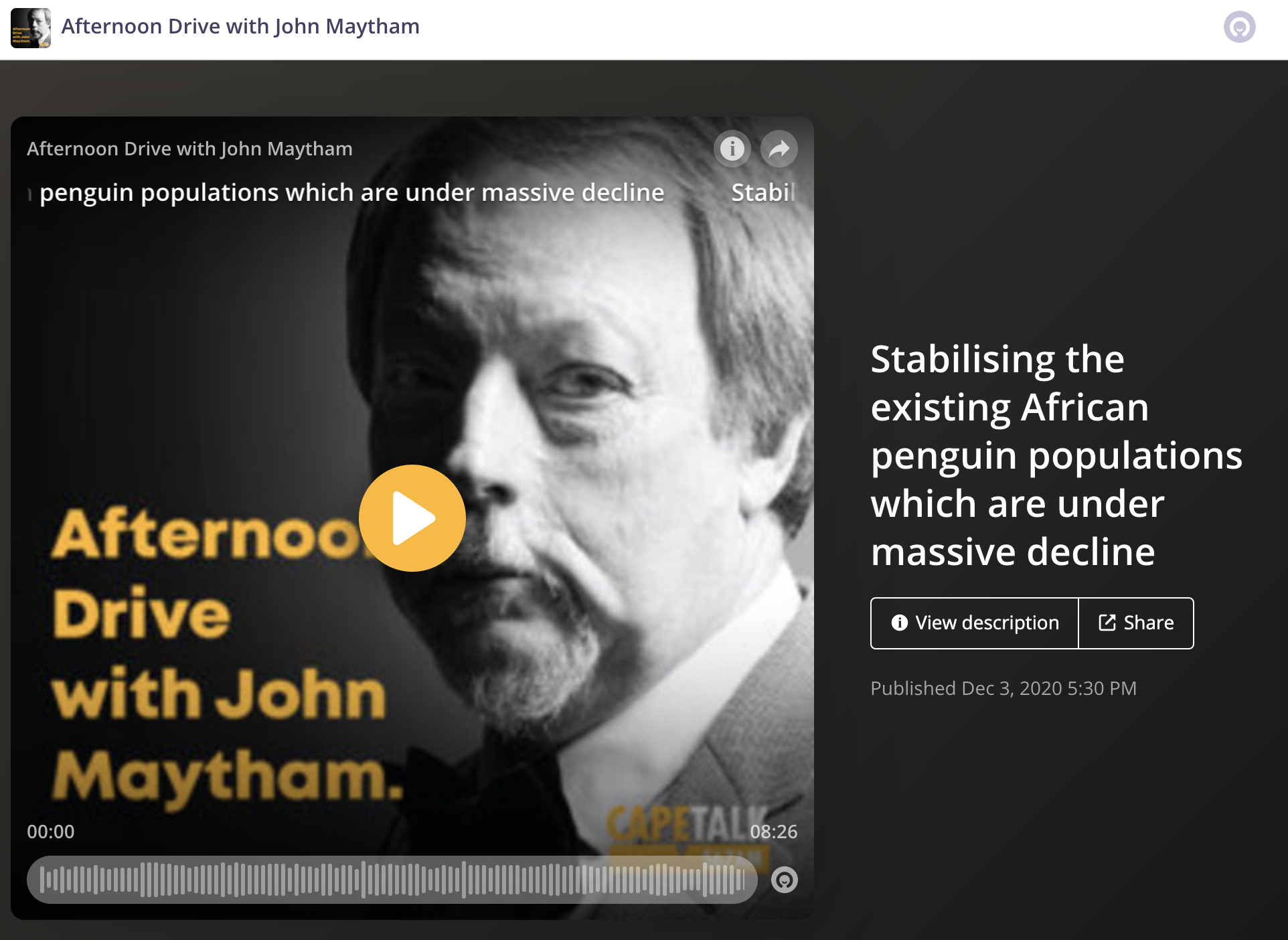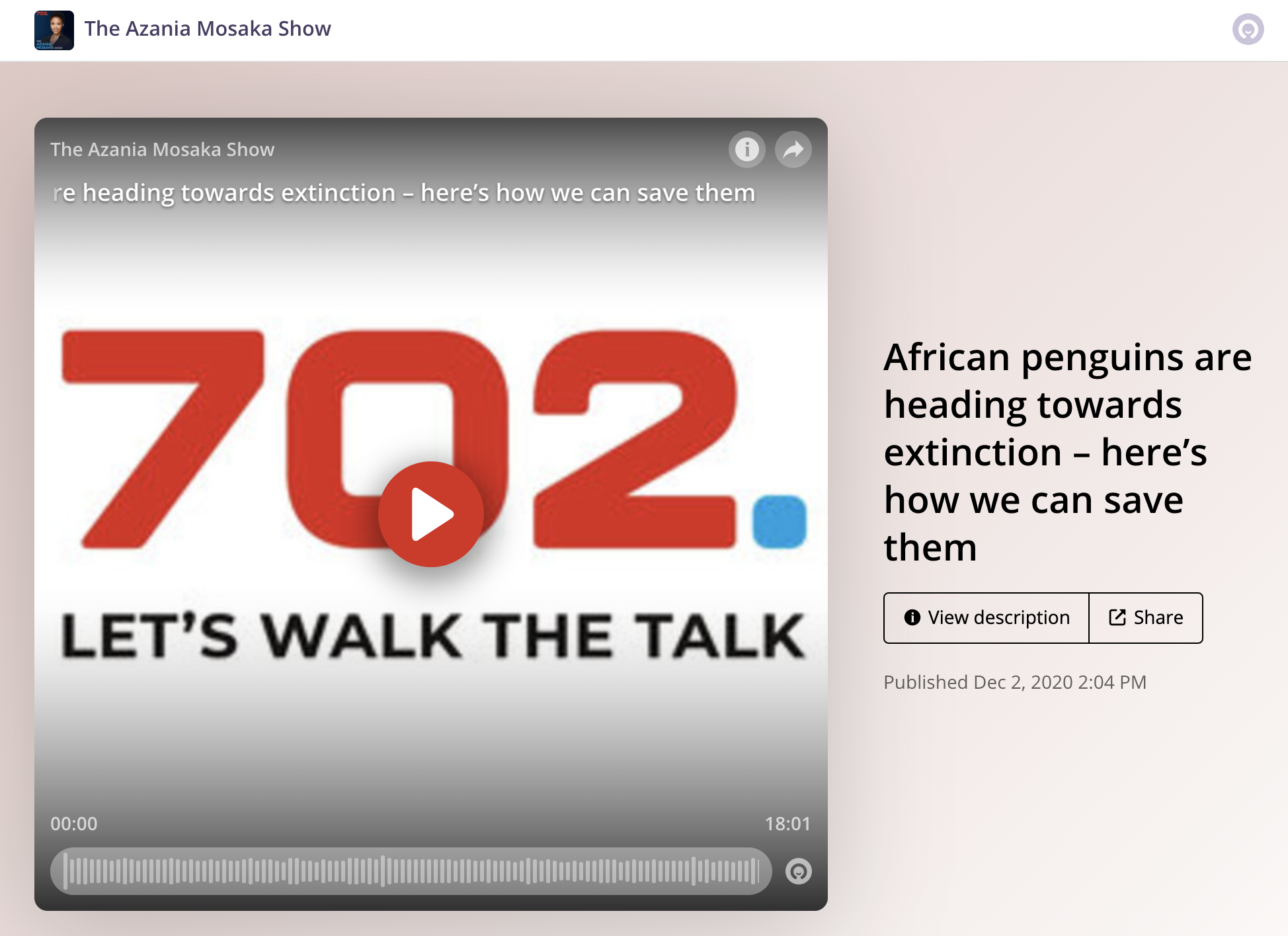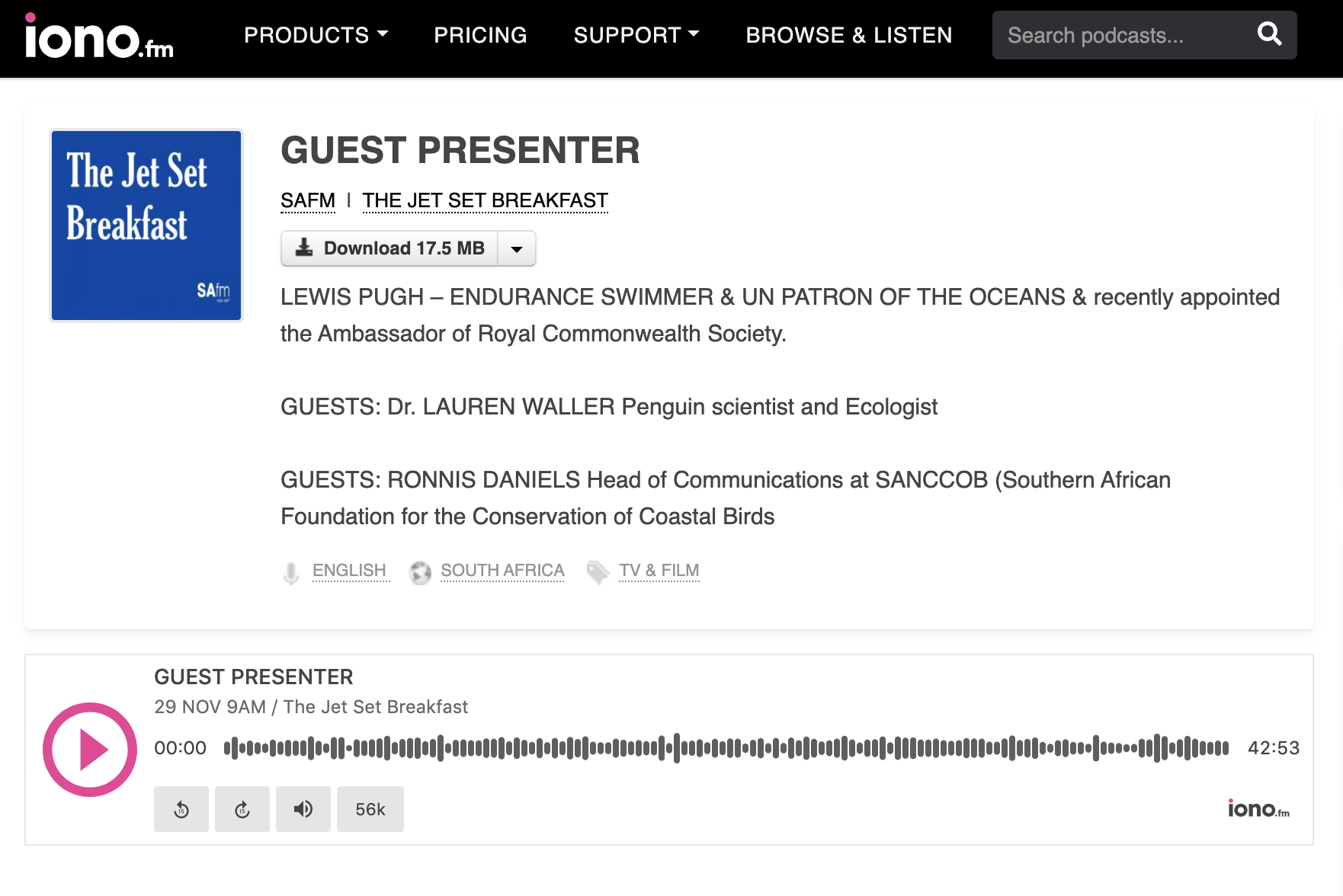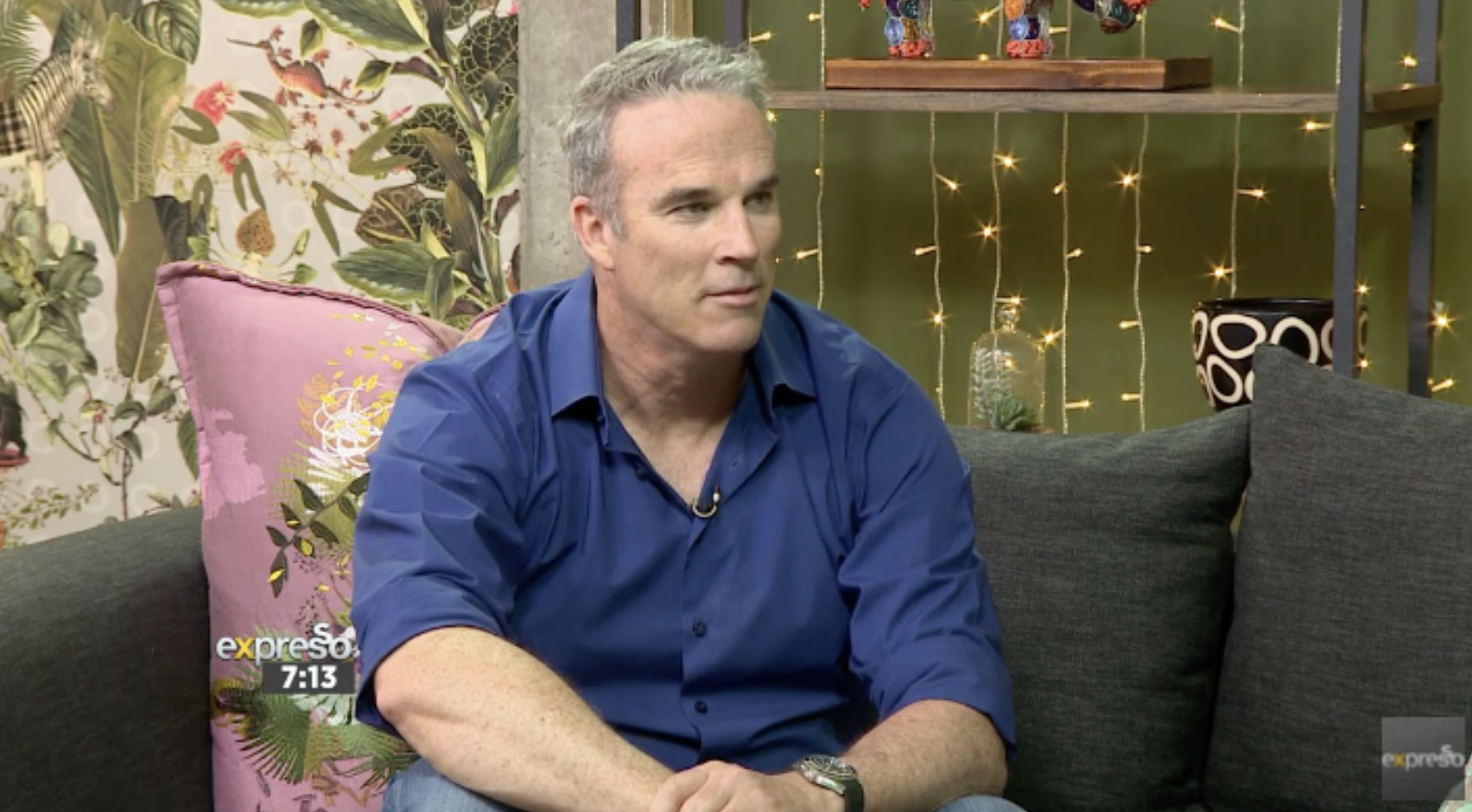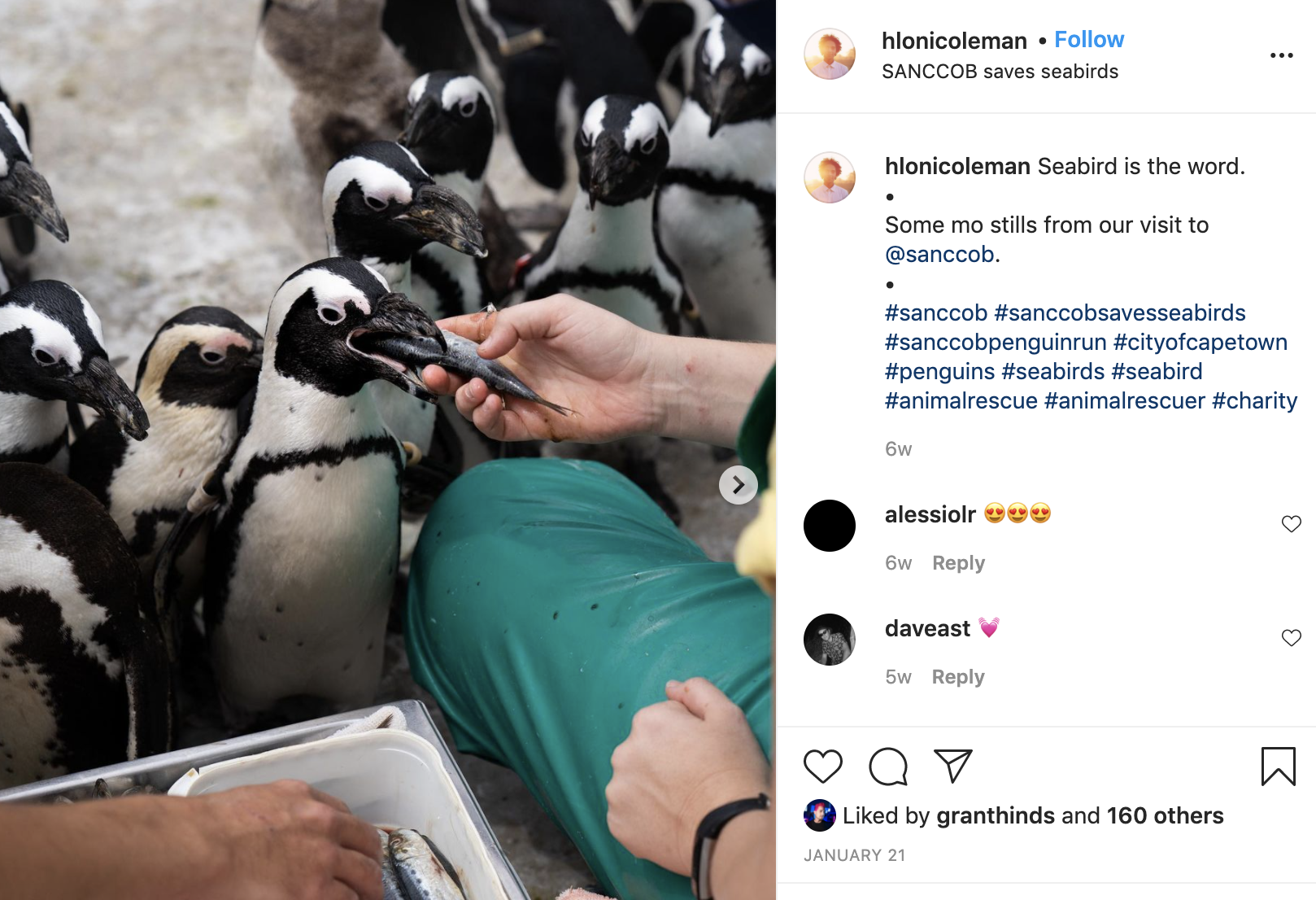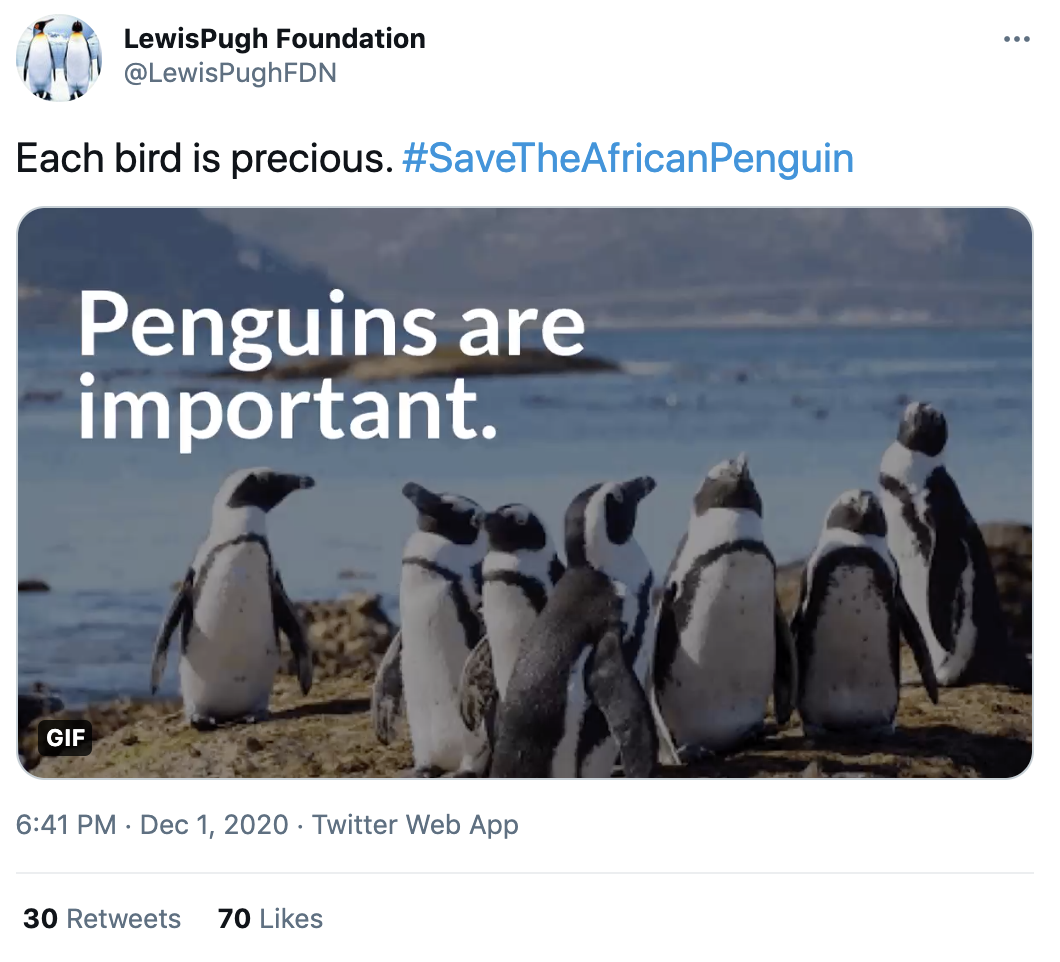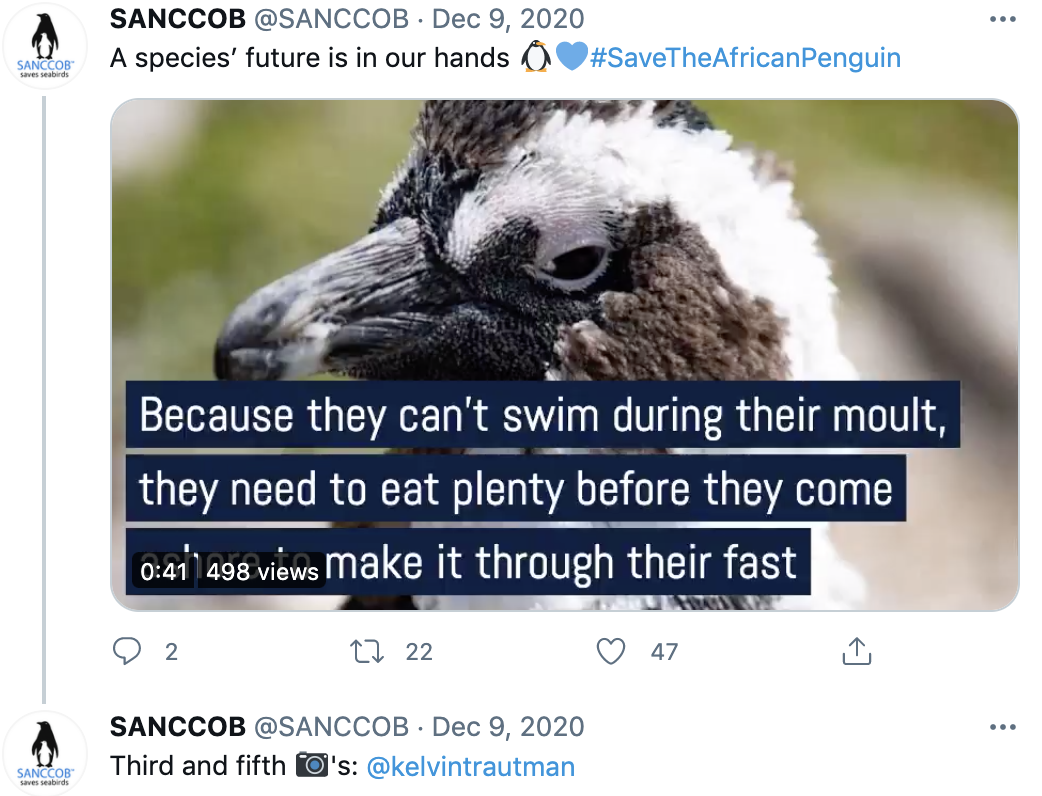Working Together to #SaveTheAfricanPenguin
How do you get the media to pay attention to the steady population decline of the African Penguin amidst a global pandemic and rising unemployment? SANCCOB, The Lewis Pugh Foundation, and Treeshake came together to achieve more together than any one organisation could do alone. In under two weeks we secured coverage from mainstream South African media platforms - including The Daily Maverick, Expresso, Cape Talk, 702, SAfm, The Herald Live - and reached over 1 million people reached on social media and many more on radio and TV.
A collaboration to Save Seabirds
The Southern African Foundation for the Conservation of Coastal Birds (SANCCOB) is an organisation that has been dedicated to saving seabirds since its establishment in the late 1960s. Fifty-three years on and the centre is still leading African penguin rehabilitation and rescue in Southern Africa.
SANCCOB does not do it alone however, having successfully pulled off mammoth seabird rescues with help from their dedicated volunteers and various supporters. One of which is Lewis Pugh, UN Patron of Oceans and endurance swimmer.
In November 2020, Treeshake worked with SANCCOB and the Lewis Pugh Foundation to share a simple message: African Penguins are at risk of functional extinction, we need to do everything we can to save them. During the two-week campaign, Treeshake ran the media, digital, and PR for #SaveTheAfricanPenguin campaign to raise awareness on the plight of the African Penguin.
Photo: Kelvin Trautman
Giving the African penguin a fighting chance
Every year African penguins moult. This generally occurs November through to January, where birds stay ashore for up to three weeks shedding and regrowing their protective feathers. Towards the beginning of moulting season, Lewis Pugh had the opportunity to drive out to Stony Point, one of South Africa’s largest and most successful African penguin breeding colonies to assist SANCCOB with a release of rehabilitated penguins. Scanning the colony, Lauren Waller, a SANCCOB marine scientist, started pointing out birds to Lewis that weren’t likely to make it in the coming days. Fat, plump birds is what Lewis and Lauren should have been seeing on that rocky shoreline. Instead, they saw malnourished penguins with their breast bones sticking out. To quote Lewis Pugh’s OP-ED in the Daily Maverick:
“I’ve visited penguin colonies all over the southern hemisphere, but until now, I’ve never seen a starving penguin. It was eerily reminiscent of the malnourished polar bears I’ve seen in the north.”
Photo: Kelvin Trautman
Saving the African penguin hinges on several factors. One of which includes shifting offshore bunkering away from penguin colonies and another which involves ensuring that vessels are prepared in the event of an oil spill. A third factor, on which the campaign mobilised, is one of the biggest threats facing the iconic bird - having to compete with fishing companies for food, and losing.
As various review panels, international and local, were set to meet and discuss island closures and purse seine fishing around colonies in December, this was the perfect time to get going. The campaign came together within days and our team, running on a very tight timeline, and with a lot of technical information, started working intensively with SANCCOB to make sense of all the facts and produce compelling content that would get people engaged.
Building up a base of support for island closures
A varied content plan and core thematic pillars would be crucial if we were to get through all the important points and keep our audience engaged. We knew that at the heart of the campaign, a love for these unique birds would be vital. From this, one of our three core pillars was formed - ‘we can’t afford to let this happen’. By highlighting the role African penguins play in our marine ecosystem, how they create jobs, are unique and extraordinary and form part of our national heritage and brand, people would start to grasp their far reaching importance. This gave us a solid foundation from which to message on our second pillar - ‘the African penguin is at risk of functional extinction.’
Since our audience was now invested in the story of the African penguin, our focus shifted to making SANCCOB’s nuanced scientific facts and numbers accessible to our audience. What was left was something actionable - steps that could be taken to save the African penguin. This brings us to island closures, our third pillar, where we unpacked no-take fishing zones and how crucial actions from our government could make all the difference to the bird’s survival.
Over the course of the campaign, the Lewis Pugh Foundation dedicated their social media accounts to the 'Save the African Penguin' cause. On both SANCCOB and LPF socials, a rich variety of content was produced - from infographics, GIFs and videos to fact threads and waveform podcast videos.
We also identified some of the most influential voices among the tourism industry, avid penguin lovers, animal activists and seabird scientists whom we encouraged to get involved. To make participation easy, we produced a pack of African penguin facts and insights coupled with photographs that we distributed to our influential voices on social media.
These relationships were a key driver of the campaign’s success and later made it possible for us to organise an influencer event that spanned over a week. Artists, photographers, videographers and streamers - all visual storytellers - visited the SANCCOB facility where they toured the centre and learnt about what it takes to bring different seabirds back to full health. Our influencers shared their days on their social media accounts, spotlighting the important work SANCCOB does as well as the plight of the African Penguin as a whole.
Photo: Hloni Coleman
We secured Lewis Pugh three prime-time in-depth radio interviews (on Cape Talk, 702 and SAfm) focusing on the plight of the African Penguin in the Western Cape. Lewis also appeared on SABC 3’s Expresso Morning Show to talk about the campaign and wrote an OP-ED in the Daily Maverick on the main threats facing the African penguin, which we helped refine and place. The piece unpacked the decline of the African Penguin and detailed a three-point action plan to save the species.
Results
From the get-go, the #SaveTheAfricanPenguin campaign showed the importance of collaboration, and how when organisations come together around a shared purpose we can all extend our reach and impact. This was reflected by consistently high social engagement on both the Lewis Pugh Foundation and SANCCOB’s Twitter, Instagram and Facebook accounts. As a result of growing engagement, consistent community management and tagging across all accounts, SANCCOB’s social media engagement rates rose.
In just over 2 weeks, we reached over 1.5 million people, with 16 000 interactions on SANCCOB’s accounts and over 1594 mentions. SANCCOB’s social media pages grew too, with their Twitter account seeing double their usual amount of new followers in December.
Photo: Kelvin Trautman
Our end goal was to reach the South African Department of Environment, Forestry and Fisheries and encourage Minister Barbara Creecy to implement full island closures for 10 years to allow the penguin population to recover. And while the minister did engage with the issue, the islands have only been partially closed.
The purse-seine fishing industry continues to push back on conservation efforts and so we know this conversation needs to continue. The local chapter of Extinction Rebellion has now taken up the charge. If you care about this issue please sign their petition here.








